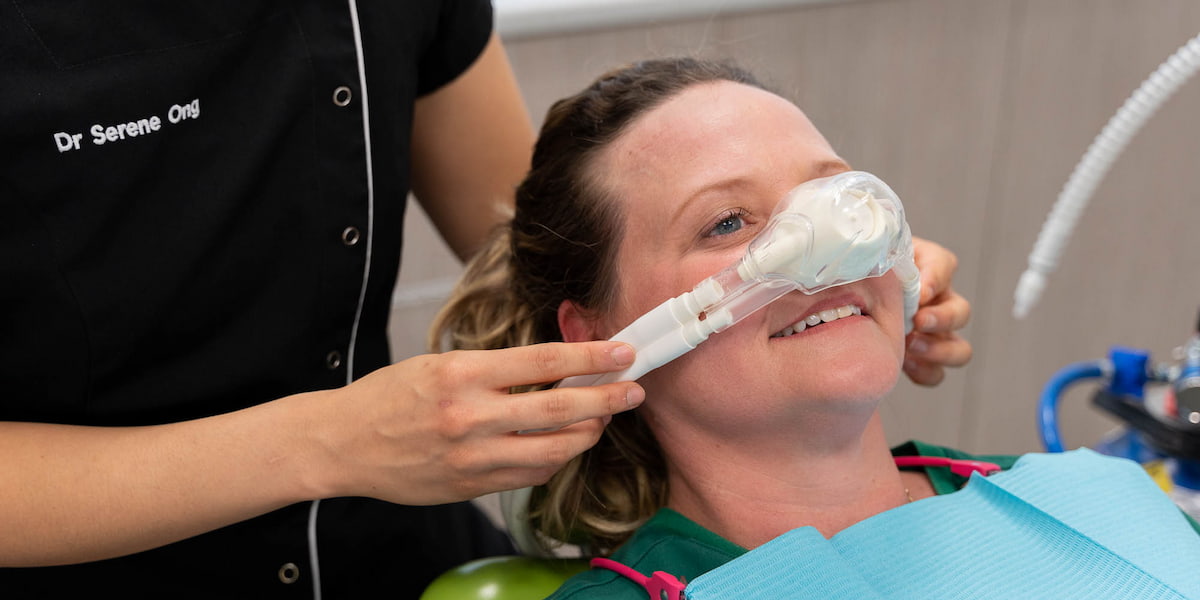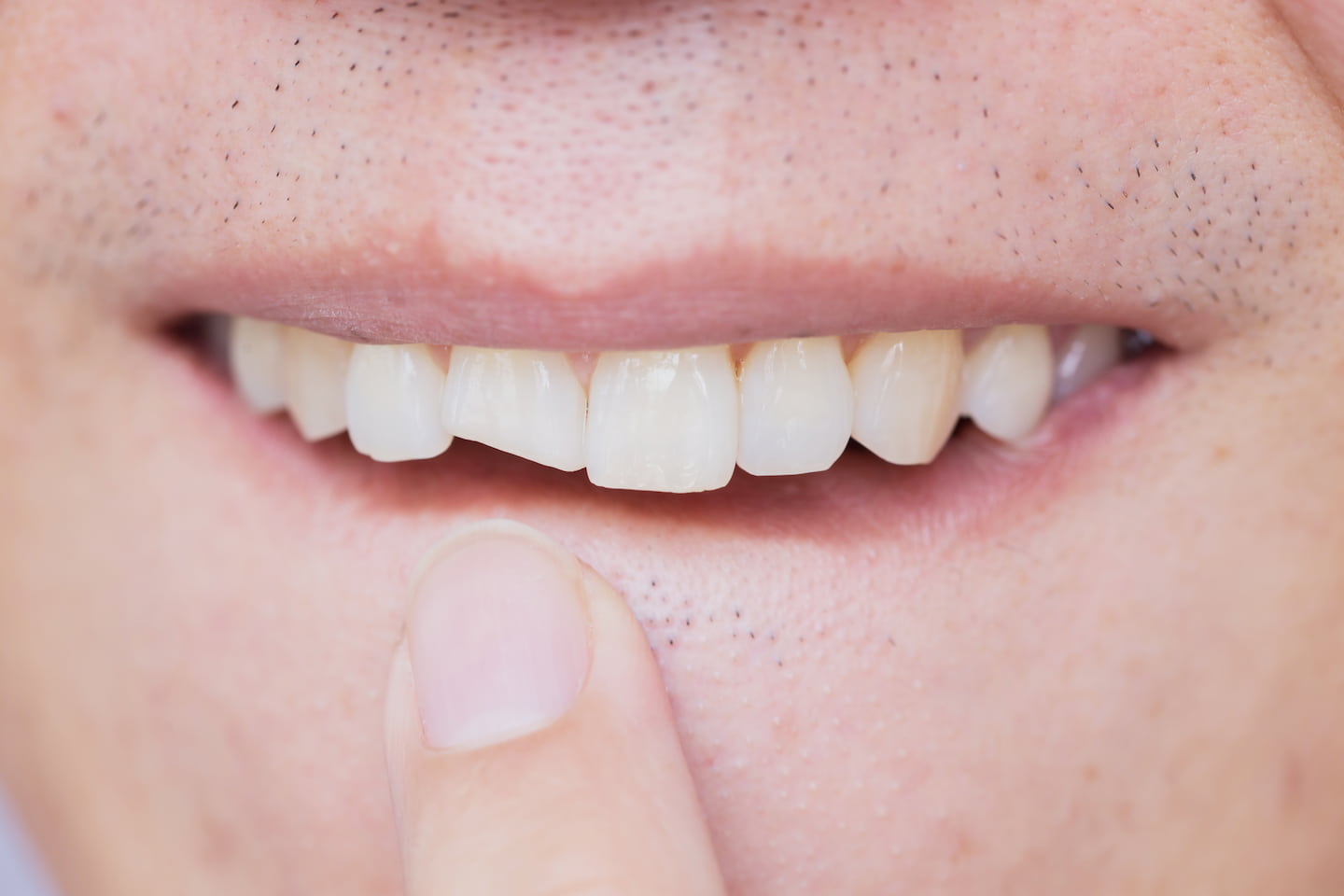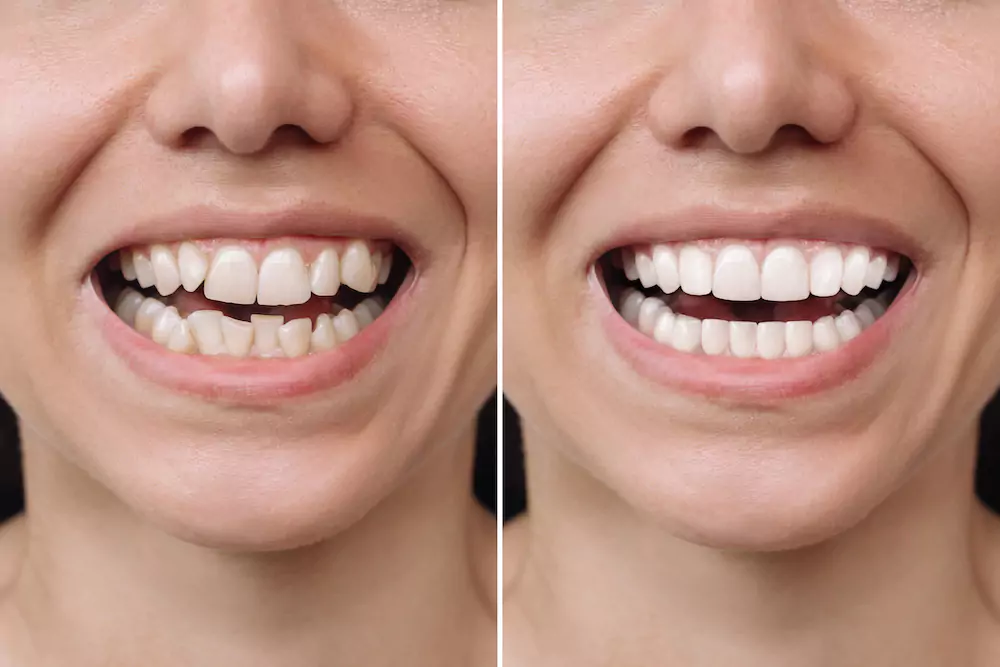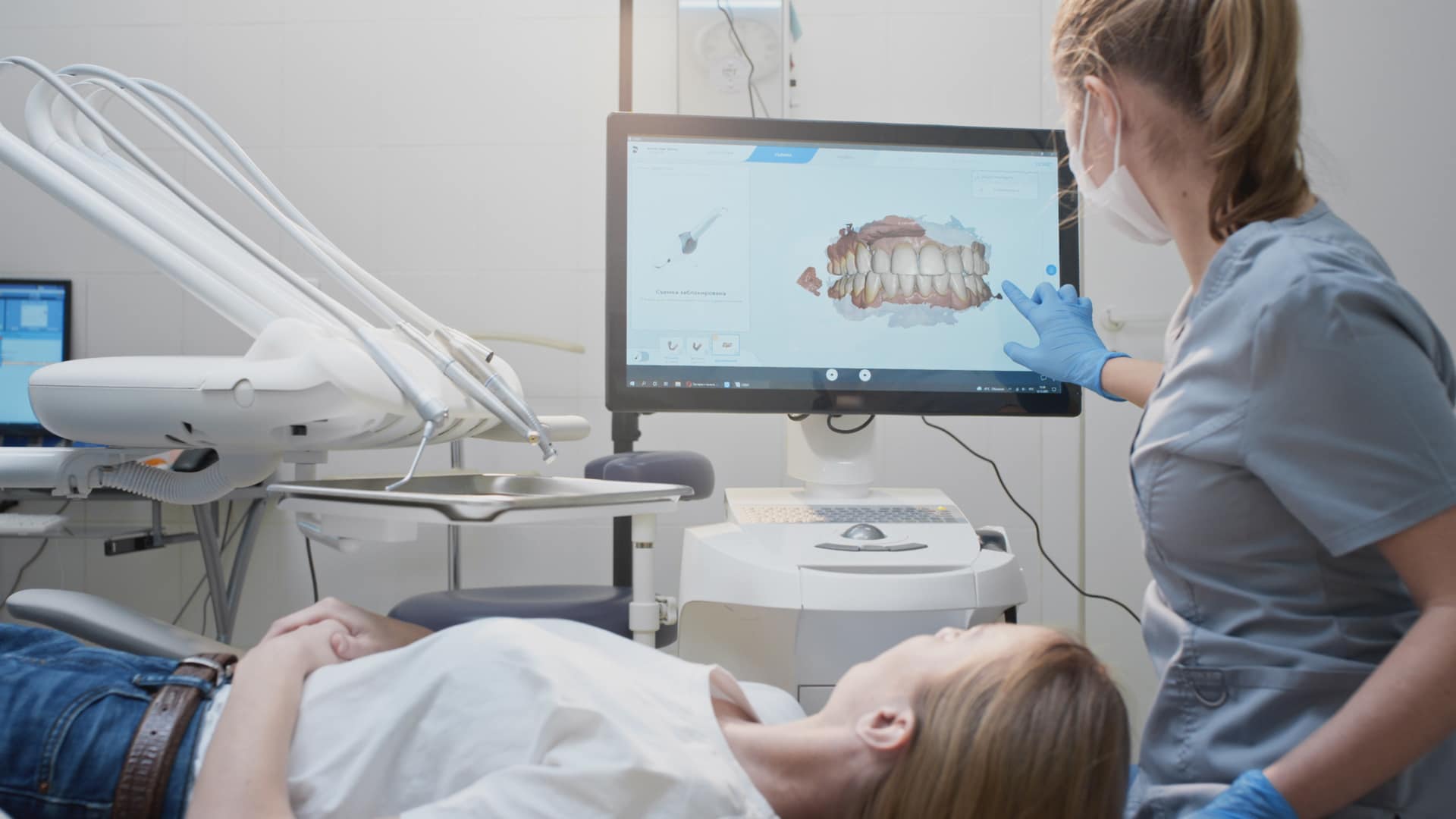
Can You Be Sedated For Dental Work?
“Can I be sedated for dental work?” is a common question I receive from my patients. I’m happy to reassure them that there are several safe, effective dental sedation options.
For over a decade, I’ve seen the amazing difference dental sedation can make in easing dental anxiety.
Here, I’ll cover the types of dental sedation and the benefits of dental sedation to help you make an informed decision.
Quick Summary:
- There are several safe and effective forms of dental sedation that can be used in a range of dental procedures
- Sedation dentistry offers numerous benefits, including reduced dental anxiety, better oral health, and more efficient procedures
- Dental sedation works by making a patient feel calm, drowsy, and relaxed during dental procedures
- Common forms of dental sedation include inhalation sedation, oral sedation, and IV sedation
- You may need to stop eating and drinking for several hours prior to sedation dentistry
- Most insurance companies in Australia do not cover sedation dentistry
- The cost of sedation dentistry will depend on the type of sedation used, the procedure, and the duration of sedation needed
Can I Be Sedated for Dental Work?
Dental sedation offers many benefits and can be used for a wide range of procedures. For instance, a minor procedure such as a dental cleaning may induce severe stress and fear in patients with dental anxiety.
Sedation dentistry ensures that patients can safely undergo procedures, even if they have a disability or dental anxiety. Still, there are considerations to be aware of with dental sedation.
Benefits
Benefits of dental sedation include:
- Pain management
- Control and reduce dental anxiety
- Reduce a patient’s movement during a procedure
- Allow the dentist to work more efficiently and complete the procedure faster
- Better oral health for individuals who would normally avoid dental procedures
- Reduce a patient’s gag reflex
- Enhance patient comfort
- Increase patient cooperation
Considerations
Dental sedation is safe and effective but not everyone is an appropriate candidate for it. There are also certain procedures that are better suited to dental sedation.
Here are some considerations to keep in mind:
- Sedation dentistry is particularly beneficial for individuals with extreme dental anxiety
- Sedation can be ideal for longer or more complicated procedures
- Sedation dentistry can be used safely and effectively for a range of procedures, including fillings, tooth extractions, cleanings, and more
- An initial consultation is necessary to make sure you are an appropriate candidate for sedation
- Your health history and medications and supplements will be taken into account to make sure you are a good candidate.
- You may need to avoid eating and drinking for several hours before your appointment
- Always inform your dentist of any medications you are taking
How Does Dental Sedation Work?
Dental sedation works by helping a patient feel calm and drowsy during a dental procedure. Depending on the type of sedation used, you may even fall asleep.
It can be delivered in a minimal, moderate, or deep level of sedation. Common types of dental sedation include inhalation sedation, oral sedation, and IV sedation.
Inhalation Sedation
Inhalation Sedation, often referred to as ‘happy gas’, involves continuously breathing Nitrous Oxide during the procedure.
This colourless gas smells slightly-sweet and helps patients feel at ease and groggy during the treatment. After the procedure, the effects of inhalation sedation wear off quickly.
IV Sedation
Intravenous (IV) Sedation involves a sedative being injected into your arm. This is often referred to as ‘sleep dentistry’ or ‘twilight dentistry’.
IV Sedation is known as conscious sedation, meaning you will be awake during the procedure but highly groggy. Some patients may even fall asleep and wake up with little to no memory of the procedure.
I recommend IV sedation as a great tool for individuals who need a lengthy, complicated procedure or who have severe dental anxiety.
Oral Conscious Sedation
Oral sedation is a drug that a patient takes about an hour before the dental appointment. It is administered in liquid or tablet form and causes drowsiness and disorientation. Oral sedation also suppresses a patient’s pain response and gag reflex.
Even though you may fall asleep during the procedure, you can still communicate with your dentist. Usually, a gentle nudge is all it takes to be able to answer a question if necessary.
General Anesthesia
General anesthesia is considered unconscious sedation. This means a patient will be completely unconscious for the procedure.
It is typically reserved for oral surgery or hospital settings. Most cases require administration by an anesthesiologist. The effects of general anesthesia can take between 12 to 24 hours to wear off.
Who Should Consider Dental Sedation?
Dental sedation should be considered by individuals who:
- Prefer to be asleep during dental procedures
- Have extreme teeth sensitivity or a low pain tolerance
- Are aggressive or uncooperative during dental treatments
- Are physically or cognitively impaired
- Experience immense dread during dental treatment
- Avoid dental care due to fear
- Have a fear of needles
- Feel claustrophobic in the dental chair
- Have an overly sensitive gag reflex
- Experience intense fear or anxiety surrounding dental appointments
You May Also Like: How to Get Over a Fear of Dentists and Calm Dental Anxiety
How Do I Prepare for Dentist Sedation?
Here are the steps to prepare for dental sedation:
- Wear comfortable, well-fitting clothes that are not overly restrictive or too loose
- Avoid jewelry or high-heeled shoes
- If you typically wear contact lenses, opt for eyeglasses
- Schedule a trusted friend or loved one to drive you home when your appointment is finished (for oral or IV sedation)
- For oral or IV sedation, avoid operating a vehicle or heavy machinery for 12 to 24 hours (or as advised by your dentist)
- Limit food and drinks according to your dentist’s recommendations (I always give my patients clear instructions on what they can and can’t eat before dental sedation)
Can You Eat and Drink Before Dental Sedation?
Depending on the type of dental sedation used, you may need to limit food and drinks before your appointment. This can help prevent side effects, such as nausea or vomiting.
For instance, I usually advise my patients to avoid eating for several hours before IV sedation. However, eating a small amount before nitrous oxide sedation may help prevent side effects.
Before a sedation dentistry appointment, I always make sure my patients know exactly how to prepare. This includes a detailed list of food and drink limitations before an appointment.
Can I Drive After Dental Sedation?
If you undergo inhalation dental sedation, the effects usually wear off quickly. Most patients can drive after nitrous oxide dental sedation.
For Intravenous (IV) or oral sedation, the drowsiness can last several hours after the procedure. It is best to arrange for a trusted loved one to drive you home after your appointment. Avoid driving or operating heavy machinery for at least 24 hours after your sedation.
Do I Need to Take Anything?
Yes, if you are undergoing oral sedation, your dentist will advise you on when to take the medicine. Usually, the medicine will be taken an hour before the procedure.
How Long Does Dental Sedation Last?
- Inhalation Sedation — Takes minutes to start working and usually wears off quickly after the procedure
- Oral Sedation — Takes up to an hour to begin working and will leave you feeling drowsy for several hours afterward
- IV Sedation — Usually works within minutes and will leave you feeling drowsy for several hours afterward
Experiencing Dental Anxiety? Our Caring Team Can Help
At Genesis Dental, we want everyone to experience the benefits of good oral health. If dental anxiety or a low pain tolerance is stopping you from receiving the dental care you need, we are here to help.
There are a variety of effective, safe dental sedation options available and we are committed to helping you find the right one for you. We offer three types of sedation options to take the stress and fear out of any dental appointment.
We’ll keep you comfortable and at ease during dental treatment using our years of experience with dental sedation.
If you or a family member struggle with dental anxiety, I’d love to talk with you about how dental sedation can transform how you view dental work.
Book an appointment for dental sedation in Perth today with our caring, experienced team at Genesis Dental.
FAQs
Can you be sedated for dental work while pregnant?
In general, sedation dentistry is not recommended for pregnant women. Certain sedatives can affect the baby’s development.
In some cases, nitrous oxide may be an option during the second trimester. However, it is recommended to avoid sedation dentistry while pregnant.
Can you get put to sleep at the dentist?
If you want to be completely unconscious for a dental procedure, it will require general anesthesia. This is not a very common option due to the specialised administration it requires.
At your consultation for sedation dentistry, your dentist will discuss your health history and sedation options. The appropriate sedation method will be determined based on your health history and specific needs.
How much does sedation cost for dental?
As a general rule, the longer you need sedation, the higher the cost will be. Dental IV sedation is usually the most expensive option.
Dental sedation costs in Australia will depend on the type of sedation needed, the procedure, and the duration of the sedation.
At your sedation dentistry consultation with us, we will discuss the best option for you and the exact costs involved.
Can you be sedated for dental impressions?
Yes, it is possible to undergo dental sedation for dental impressions if you are a good candidate for sedation dentistry.
What does dental sedation feel like?
My patients are often curious what dental sedation feels like. In general, dental sedation will help you feel sleepy, calm, and relaxed throughout the procedure.
For oral and IV sedation, you may even fall asleep during the procedure and have little memory of it afterward.
Does current medication affect dental sedation?
Yes, current medication does affect dental sedation. Your dentist will evaluate your medical history and any medication you are currently taking to make sure dental sedation is appropriate and safe for you.
Certain medications, such as blood thinners, may need to be stopped several days prior to your procedure.
Does health insurance cover dental sedation?
Some public and private health insurance companies in Australia will cover certain dental sedation services. I recommend contacting your insurance provider directly to confirm coverage.


